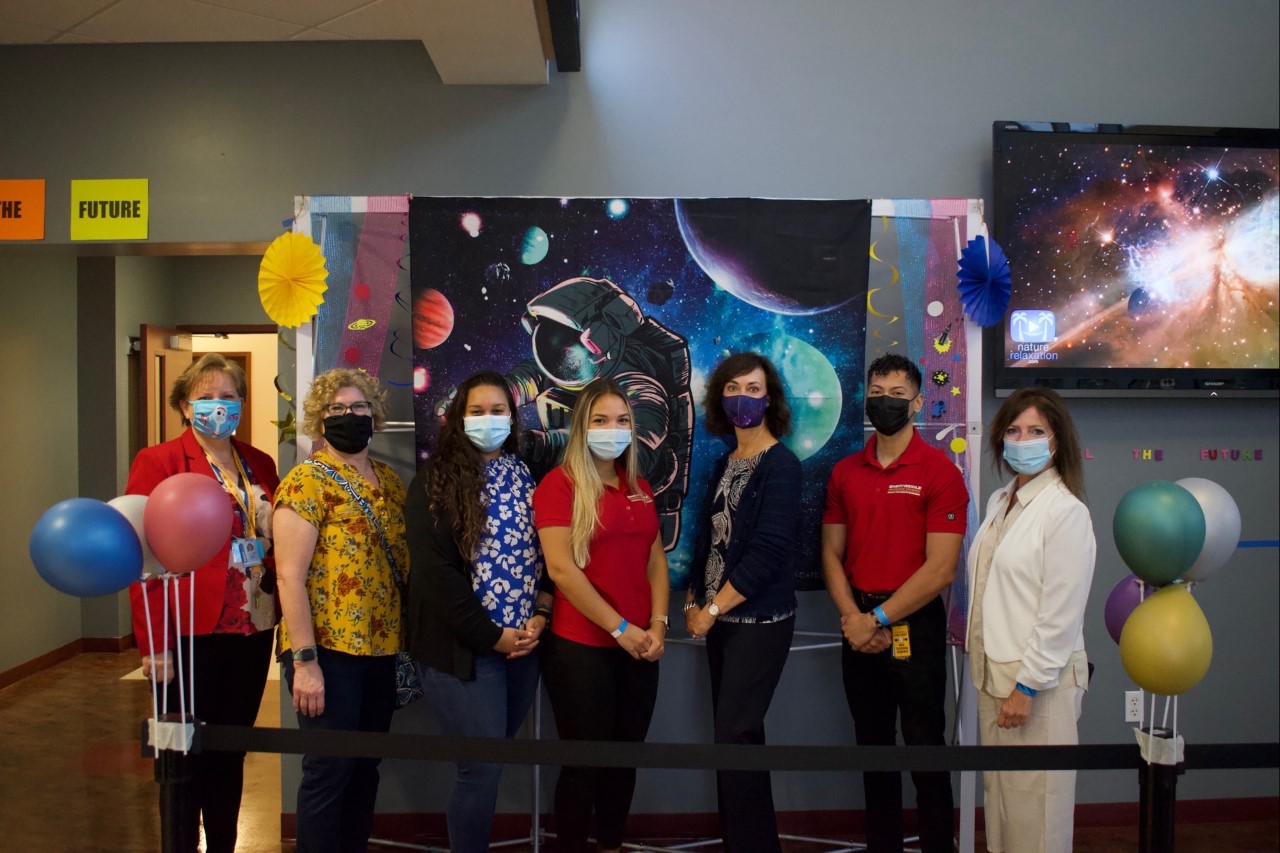Spaceports: Portals to the Universe, NASA Florida Space Grant Consortium

Merriam-Webster Dictionary (2020) defines a spaceport as “an installation for testing and launching spacecraft,” but spaceports are so much more than a slab or runway and represent an essential component of the entire space industry ecosystem (e.g. Tinoco, et al 2020). Without spaceports, there is no spaceflight. There are no astronauts. There are no satellites. There is no International Space Station. And there is no Artemis and no expedition to Mars.
A review of online learning resources for children, parents, and teachers reveals instructions and learning tools for wide range of topics including rockets, spacecraft, satellites, planetary and lunar land vehicles; propulsion systems; planets, moons, and solar systems; spacesuits, among others. Yet, no resources were found on spaceports and spaceport infrastructure, the very foundation of spaceflight.
The intent of this effort is to build an education curriculum on spaceports that enlightens children, teachers, and families on spaceports and the infrastructure needed to support the safe integration, launch, and return of various vehicles, crew, and payloads. Many children believe that space is exclusively the domain of astronauts, engineers, or scientists (e.g., The LEGO Group 2019). Educators and parents are often of the same mindset. But space is for everyone and the careers associated with the space economy are wide and varied. Spaceports are just one domain where many individuals contribute to the success of a space program or initiative, each a valuable member of this unique sector. The more our younger populations learn of the different areas of the space ecosystem and the associated types of jobs, the better we all will be in building and sustaining a space economy fortified by a diverse workforce. Initially, the primary beneficiaries of this effort will be local school children and teachers in the state of Florida, particularly in Volusia County and other geographic areas of the Space Coast. Our hope is to engage economically disadvantages schools (with and without STEM programs) for a pilot study, allowing for a wider audience of interests and backgrounds. Our proposed effort has garnered the encouragement of Space Florida and resource support from Space Foundation and Volusia County Public Schools (VCPS) teachers.
Tinoco, J., Yu, C., Howard, D., Stilwell, R. (2020). Introduction to Spaceports: Runways to Space, Milton Park, Abingdon, Oxon: Routledge
The LEGO Group (2019). LEGO group kicks off global program to inspire the next generation of space explorers as NASA celebrates 50 years of moon landing. Retrieved from https://www.prnewswire.com/news-releases/lego-group-kicks-off-global-program-to-inspire-the-next-generation-of-space-explorers-as-nasa-celebrates-50-years-of-moon-landing-300885423.html
Merriam-Webster Dictionary (2020) defines a spaceport as “an installation for testing and launching spacecraft,” but spaceports are so much more than a slab or runway and represent an essential component of the entire space industry ecosystem (e.g. Tinoco, et al 2020). Without spaceports, there is no spaceflight. There are no astronauts. There are no satellites. There is no International Space Station. And there is no Artemis and no expedition to Mars.
A review of online learning resources for children, parents, and teachers reveals instructions and learning tools for wide range of topics including rockets, spacecraft, satellites, planetary and lunar land vehicles; propulsion systems; planets, moons, and solar systems; spacesuits, among others. Yet, no resources were found on spaceports and spaceport infrastructure, the very foundation of spaceflight.
The intent of this effort is to build an education curriculum on spaceports that enlightens children, teachers, and families on spaceports and the infrastructure needed to support the safe integration, launch, and return of various vehicles, crew, and payloads. Although further analysis is needed, the targeted segment of the population will likely be students in grades 2 through 8 and teachers that focus on this age group. Best teaching approaches and age-appropriate topics will be reviewed with local community teachers and industry to provide a well-rounded overview of spaceports, as well as types of jobs that are prevalent. Additional topics could include propellants, communications, security/cybersecurity, transportation and storage of components, airspace use, environmental and community considerations, space policies and laws, etc. The outcome of this effort will be a “ready to go” curriculum that can be provided either in the classroom or in a spring/summer camp environment. Further, considerations will be given to face-to-face and remote instruction. Teaching materials will be developed to aid educators and will be made available for use.
Many children believe that space is exclusively the domain of astronauts, engineers, or scientists (e.g., The LEGO Group 2019). Educators and parents are often of the same mindset. But space is for everyone and the careers associated with the space economy are wide and varied. Spaceports are just one domain where many individuals contribute to the success of a space program or initiative, each a valuable member of this unique sector. The more our younger populations learn of the different areas of the space ecosystem and the associated types of jobs, the better we all will be in building and sustaining a space economy fortified by a diverse workforce. Initially, the primary beneficiaries of this effort will be local school children and teachers in the state of Florida, particularly in Volusia County and other geographic areas of the Space Coast. Our hope is to engage economically disadvantages schools (with and without STEM programs) for a pilot study, allowing for a wider audience of interests and backgrounds. Our proposed effort has garnered the encouragement of Space Florida and resource support from Space Foundation and Volusia County Public Schools (VCPS) teachers.
Tinoco, J., Yu, C., Howard, D., Stilwell, R. (2020). Introduction to Spaceports: Runways to Space, Milton Park, Abingdon, Oxon: Routledge
The LEGO Group (2019). LEGO group kicks off global program to inspire the next generation of space explorers as NASA celebrates 50 years of moon landing. Retrieved from https://www.prnewswire.com/news-releases/lego-group-kicks-off-global-program-to-inspire-the-next-generation-of-space-explorers-as-nasa-celebrates-50-years-of-moon-landing-300885423.html
Research Dates
10/01/2020 to 04/30/2021
